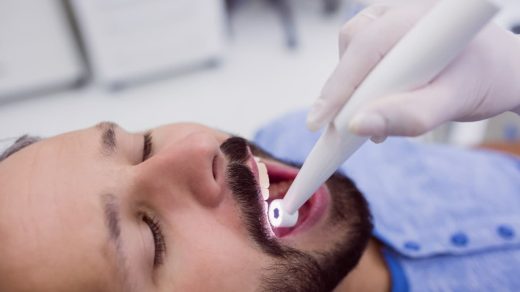When it comes to maintaining your dental health, you’re bound to interact with a variety of oral health professionals.
Among the most common are dentists and orthodontists—but what exactly is the difference? More importantly, how do you know which one to visit for your specific dental needs?
Understanding the distinctions between these two professionals is crucial for making informed decisions about your oral health care.
While dentists focus on overall oral health, orthodontists specialize in correcting alignment issues.
Difference Between a Dentist and an Orthodontist

By the end of this article, you’ll have a clear understanding of these roles, making it easier to choose the right professional for you or your family.
Dentist vs. Orthodontist: Education and Training
While both dentists and orthodontists begin their journeys in dental school, the educational paths significantly diverge as they specialize.
Here’s a closer comparison:
- Dentists
Dentists complete a bachelor’s degree (or equivalent) followed by a dental degree, such as DDS (Doctor of Dental Surgery) or DMD (Doctor of Dental Medicine).
It generally takes five to six years of study and practical training to qualify as a general dentist. Once qualified, dentists are equipped to handle a wide range of oral health concerns, from routine cleanings to oral surgery.
- Orthodontists
Orthodontists first become qualified dentists, completing the same foundational education. However, they then pursue an additional three years of specialised training to become experts in orthodontics.
This extra training focuses on correcting jaw alignment and straightening teeth using braces, aligners, and other specialized tools.
The easiest way to remember this distinction? Every orthodontist is a dentist, but not every dentist is an orthodontist.
Services Offered: Dentist vs. Orthodontist
One of the key differences between dentists and orthodontists lies in the services they offer. Knowing what each professional provides can help you decide which one to consult for your needs.
Dentists
Dentists focus on overall oral health and provide services such as:
- Routine check-ups and cleanings to maintain dental hygiene.
- Fillings and cavity treatments to address tooth decay.
- Root canals to save teeth affected by severe decay or infections.
- Crowns, bridges, and veneers for restorative or cosmetic improvements.
- Gum health treatments to manage gingivitis and periodontitis.
- Teeth whitening for aesthetic enhancements.
Dentists act as your first line of defense against oral health issues, working to maintain healthy teeth and gums.
Orthodontists
Orthodontists, on the other hand, specialize in the following:
- Braces for straightening teeth, and correcting overbites, and underbites.
- Clear aligners like Invisalign for discreet orthodontic treatment.
- Palate expanders to address structural jaw issues, especially in growing children.
- Retainers to maintain teeth alignment post-braces.
- Corrective jaw surgery in collaboration with oral surgeons for severe alignment issues.
Orthodontists provide treatments that go beyond general dental care, focusing on alignment, balance, and the overall structure of your teeth and jaw.
Conditions Treated
Before you book an appointment, it’s important to know which oral health professional is best suited to treat your condition.
Dentists Address:
- Cavities and tooth decay with fillings and restorative measures.
- Gum diseases such as gingivitis and periodontitis, using scaling and root planing.
- Tooth sensitivity by diagnosing the underlying issue and providing solutions like desensitizing treatments.
- Oral hygiene issues through professional cleaning and personalized advice.
- Emergency problems like broken teeth or pain from abscesses.
Orthodontists Address:
- Overbites, underbites, and crossbites with braces and aligners.
- Crowded or gapped teeth using corrective appliances like retainers.
- Jaw misalignment may cause discomfort or dysfunction.
- Speech issues related to misaligned teeth through treatment that improves alignment.
- Facial symmetry corrections impact the jaw and teeth.
If your primary concern is alignment or jaw-related issues, an orthodontist is your go-to specialist. For general dental care, bookings with a dentist should suffice.
When to See a Dentist vs. an Orthodontist?
Confused about when to see which professional? Here’s a quick guide:
When to Visit a Dentist?
You should visit your dentist for regular check-ups at least twice a year or when you’re dealing with:
- Toothache or sensitivity.
- Cavities or visible decay.
- Bleeding gums or signs of gum disease.
- Issues requiring cosmetic treatments like veneers or whitening.
- Any oral emergencies or unusual discomfort.
When to Consult an Orthodontist?
Consider visiting an orthodontist if you notice:
- Crooked, crowded, or gapped teeth.
- Difficulty biting, chewing, or speaking due to alignment issues.
- Jaw pain or audible popping sounds when moving your jaw.
- A child showing signs of misaligned teeth or improper jaw growth.
Orthodontists can also work closely with dentists to create a comprehensive oral health plan.
The Importance of Regular Dental Visits
Maintaining routine dental check-ups is vital for everyone, regardless of age or orthodontic status.
Dentists not only keep your teeth and gums healthy but can also flag issues that might require specialist attention.
For patients undergoing orthodontic treatment, regular visits help ensure general oral health is not overlooked during the alignment process.
Whether you’re a parent managing your child’s braces or an adult addressing your dental health, consistent visits to both professionals can ensure comprehensive care.
Making the Right Choice for Your Dental Health
Understanding the difference between a dentist and an orthodontist allows you to make better decisions for your oral health.
Dentists are your go-to for routine care and treatments for common issues, while orthodontists focus on correcting alignment and jaw-related concerns.
Remember, your dental health is an essential part of your overall well-being, and choosing the right professional is the first step toward a confident smile.
To get started, schedule an appointment with your dentist or orthodontist today to discuss your needs and treatment options.
Frequently Asked Questions
- Can a dentist perform orthodontic treatments like braces?
While some general dentists may offer basic Invisalign treatments, only orthodontists are specifically trained to handle more complex cases like braces or surgical interventions for jaw alignment.
- Should I see a dentist or an orthodontist for teeth straightening?
For professional teeth straightening, it’s best to consult an orthodontist. They have specialised training and tools to address alignment issues effectively.
- How do I know if I need to see an orthodontist?
Signs like crooked teeth, difficulty chewing, persistent jaw pain, or gaps in your teeth may be indicators that you need orthodontic care. Consult your dentist first—they can often provide a referral if necessary.



